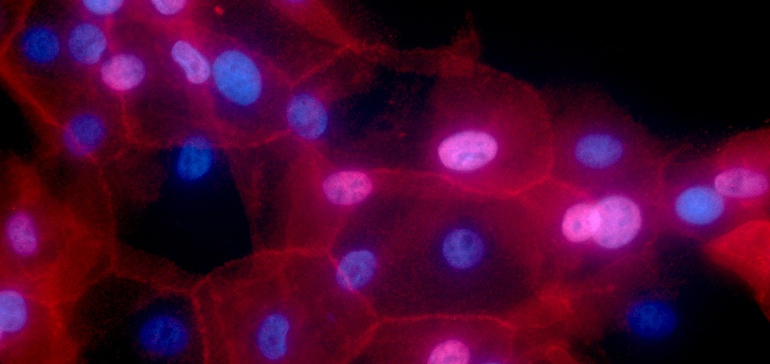
The Food and Drug Administration has approved AstraZeneca and Merck & Co.'s drug Lynparza for people with a genetic form of early breast cancer, a decision that could spur greater use of DNA testing in diagnosing and treating the disease.
Lynparza is already used to treat metastatic breast cancer in patients with so-called BRCA gene mutations. The new approval makes Lynparza available earlier in their disease, after surgery to remove a tumor and standard drugs like chemotherapy and radiation. People with cancers that are "HER2-negative" and at a high risk of relapsing are eligible for treatment.
The decision is based on the results of a large study published last year in The New England Journal of Medicine last year. In it, Lynparza reduced the risk of disease progression or death by 42% versus placebo after a median of 2.5 years of follow-up. Updated results show the drug cut the risk of death by about a third, a finding the companies will detail at a medical meeting on Wednesday.

For years, doctors have known that breast cancer patients who have inherited mutations to the BRCA1 or BRCA2 genes tend to have more aggressive disease. Patients with these DNA alterations, present in about 5% to 10% of all breast cancers, tend to develop tumors at a younger age, too. Some studies have shown their cancers also spread faster and are more likely to return, when they can be deadlier.
Yet testing for those mutations has lagged, particularly in early-stage disease. According to Ipsos Healthcare's Global Oncology Monitor, 60% to 70% of patients with so-called triple-negative tumors and just 25% to 35% of HR-positive patients — a far more common form of breast cancer — are tested.
That's partly because until Friday's FDA decision, there were no marketed drugs specifically targeting BRCA1 and BRCA2 mutations in early breast cancer.
The results of AstraZeneca and Merck's OlympiA trial, presented at the American Society of Clinical Oncology meeting last year, are changing that. The study found that Lynparza, when used after surgery to remove a tumor, kept patients alive and cancer-free longer than standard drugs.
That benefit was observed in patients who had inherited a mutation to the BRCA1 or BRCA2 genes, were at high risk of cancer recurrence because of the size of their tumor or other factors, and had either HR-positive or triple-negative disease. Outside experts judged the data to be practice-changing, as about a third of breast cancer patients relapse.
In interviews last year with BioPharma Dive, AstraZeneca and Merck executives, as well as oncologists not involved with the trial, described the results as a call to action for greater BRCA testing. Debu Tripathy, the chair of MD Anderson Cancer Center's breast medical oncology department, said oncologists might push to broaden testing guidelines beyond those patients who get cancer at a young age or have a family history of BRCA mutations. "This is a big win," he said at the time.
Lynparza is one of a number of high-priced medicines, like some immunotherapies and CDK 4/6 inhibitors, that were first approved in advanced settings and are now becoming available in early breast cancer. Though they each have shown the potential to extend lives and keep tumors from returning, they can also drive up costs for uninsured patients and increase insurance premiums for others, Tripathy noted last year. The treatments also come with side effects. Lynparza, for example, is associated with nausea, vomiting, diarrhea, and in rarer cases, severe anemia that can require a blood transfusion.
AstraZeneca and Merck have more definitive evidence in Lynparza's favor than they did a year ago. More recent findings showed treatment led to a clear survival benefit, which the partners plan to soon disclose in more detail.
AstraZeneca will receive $175 million from Merck as a result of the approval, a milestone payment agreed to as part of the long-running alliance between the two companies.